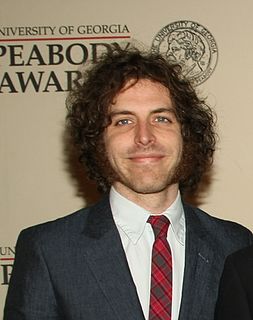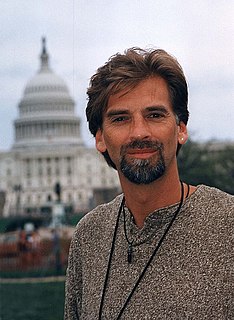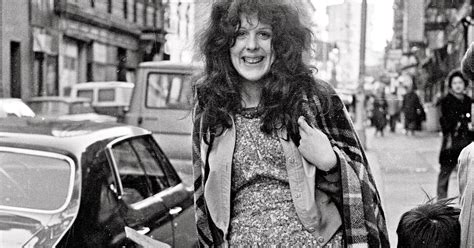A Quote by Jan Vogler
In Berlin... it's important to present a concert that will change their ears... so if you present a Tchaikovsky symphony, you get almost no audience.
Related Quotes
We human beings have enormous difficulty in focusing on the present; we always thinking about what we did, about how we could have done it better.... or else we think about the future, about what we're going to do.... But at this precise moment, you also realize that you can change your future by bringing the past into the present. Past and future only exist in our mind. The present moment, though, is outside of time, it's Eternity.... It isn't what you did in the past the will affect the present. It's what you do in the present that will redeem the past and thereby change the future.
We are living in a culture entirely hypnotized by the illusion of time, in which the so-called present moment is felt as nothing but an infinitesimal hairline between a causative past and an absorbingly important future. We have no present. Our consciousness is almost completely preoccupied with memory and expectation. We do not realize that there never was, is, nor will be any other experience than present experience. We are therefore out of touch with reality.
The present moment, though, is outside of time, it’s Eternity. In India they use the word “karma” for lack of any better term. But it’s a concept that’s rarely given a proper explanation. It isn’t what you did in the past that will affect the present. It’s what you do in the present that will redeem the past and thereby change the future.
If you are hired to shake up the system, do it. No one will believe you're the boss until you do one or more of the following: 1. Add a new division; 2. Lop off a present department; 3. Add new people or reassign and reward present employees; 4. Get rid of deadwood; 5. Change the method of accounting; 6. Change lawyers, accountants, or other outside services; 7. Ask a lot of questions, and demand answers by a certain date; 8. Get in touch with key people in your industry or city and arrange personal meetings; 9. Improve working conditions; 10. Update present benefit plans.
Worship will never end; whether there be buildings, they will crumble; whether there be committees, they will fall asleep; whether there be budgets, they will add up to nothing. For we build for the present age, we discuss for the present age, and we pay for the present age; but when the age to come is here, the present age will be done away.
Duke Ellington's career traces the entire history of jazz. The repertoire associated with him contains the most important elements in the music and provides concrete examples of some of the best ways to present the music in the widest variety of settings-radio, TV, recordings, movies, concert halls, festivals, solo, small ensemble, big band, symphony orchestra, opera, Broadway shows.... You name it, he did it!
In France, we have laïcité, which means that atheism is almost our state religion. But I think a very important part of Western culture is in the centuries when Christianism was dominant and was present in almost all works of art - not only liturgical works, but also literature and music. Yes, it's important to have that in our present. It doesn't mean that people have to adhere to a dogma or practice a religion, but it's part of our heritage, and you have to at least try to understand it. Otherwise you can't be a modern person.
I believe it is quite possible for us to obtain an outer peace at the present time. Historically speaking, when human beings are faced with the choice between destruction and change, they are apt to choose change, and it's about the only thing that will make them choose change. So we have the possibility at the present time to take a different direction in the world - the possibility exists!



































